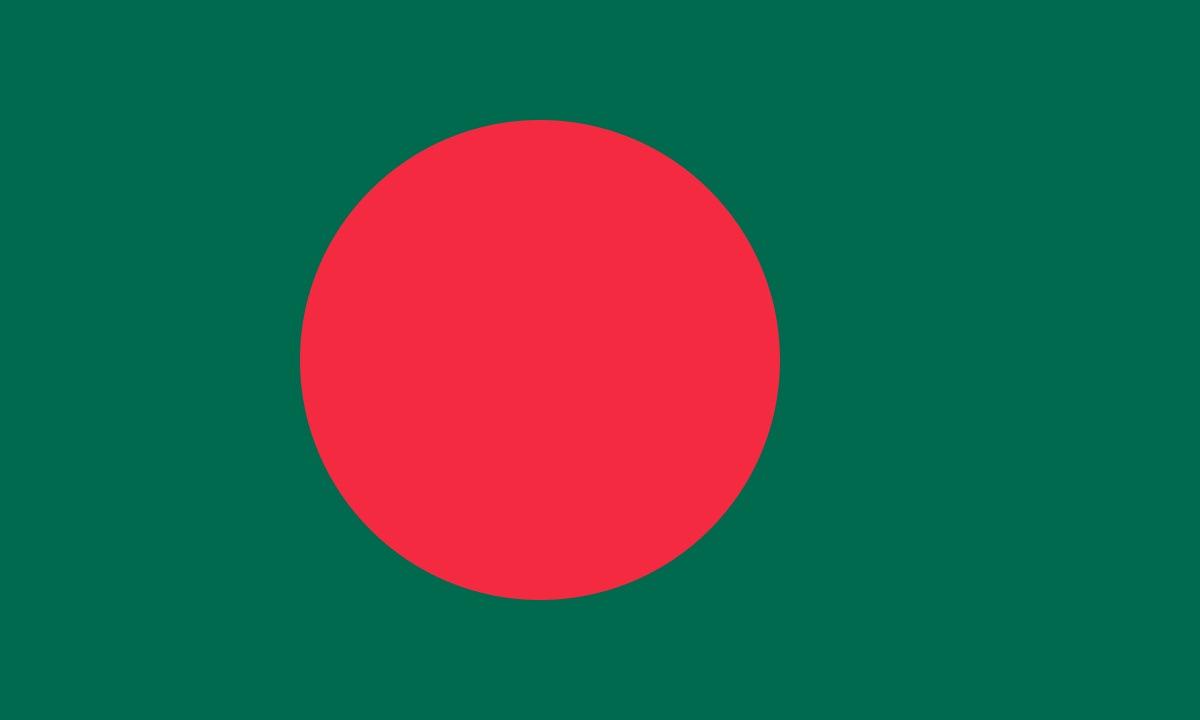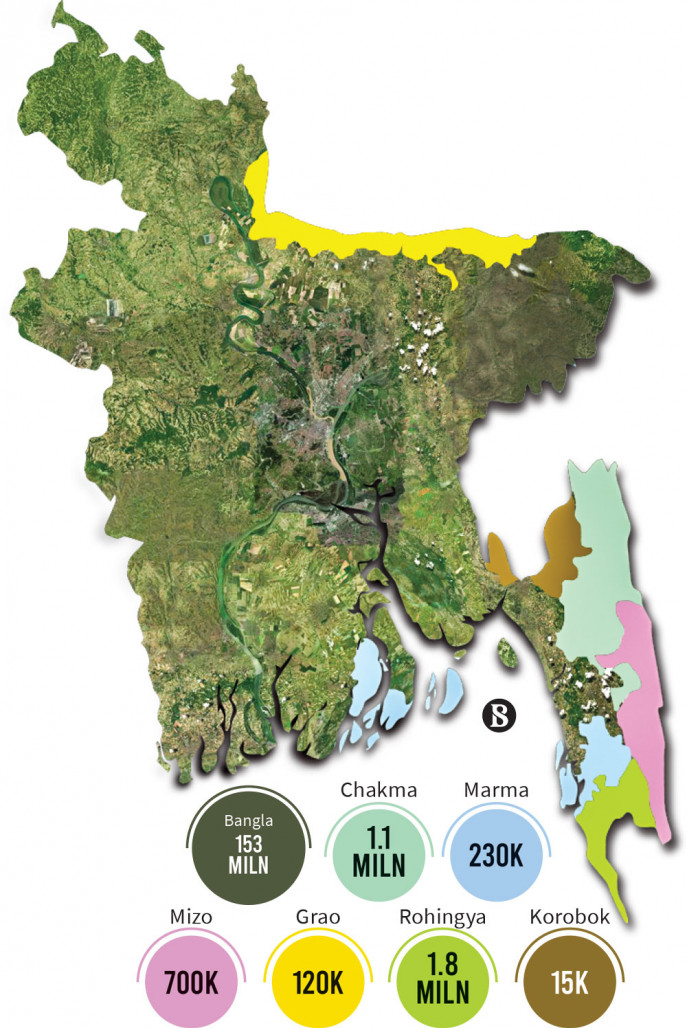Bangladesh
Bangladesh,[a] formally Individuals' Republic of Bangladesh,[b] is a country in South Asia. It is the eighth-most crowded country on the planet and is among the most thickly populated nations with a populace of almost 170 million in a space of 148,460 square kilometers (57,320 sq mi). Bangladesh imparts land lines to India toward the north, west, and east, and Myanmar toward the southeast. Toward the south, it has a shoreline along the Inlet of Bengal. It is barely isolated from Bhutan and Nepal by the Siliguri Passage, and from China by the bumpy Indian territory of Sikkim in the north. Dhaka, the capital and biggest city, is the country's political, monetary, and social focus. Chittagong is the second-biggest city and is the most active port on the Narrows of Bengal. The authority language of Bangladesh is Bengali while Bangladeshi English is likewise utilized in the public authority and official records close by Bengali.
Bangladesh shapes the sovereign piece of the notable and ethnolinguistic locale of Bengal, which was isolated during the Parcel of India in 1947 as a component of a Muslim association with Pakistan, which it isolated from in a horrendous freedom battle in 1971.[21] The nation has a Bengali Muslim greater part. Old Bengal was known as Gangaridai and was a stronghold of pre-Islamic realms. Muslim victories after 1204 proclaimed the sultanate and Mughal periods, during which a free Bengal Sultanate and a well off Mughal Bengal changed the locale into a significant focal point of provincial undertakings, exchange, and strategy.
After the Clash of Plassey in 1757, the greatest degree of English Bengal extended from the Khyber Pass in the west to Singapore in the east.[22][23] The making of Eastern Bengal and Assam in 1905 set a trend for the rise of Bangladesh. The Everything India Muslim Association was established in Dhaka in 1906.[24] In 1940, the principal State head of Bengal, A. K. Fazlul Huq, upheld the Lahore Goal. Before the segment of Bengal, a Bengali sovereign state was first proposed by chief H. S. Suhrawardy. A mandate and the declaration of the Radcliffe Line laid out the present-day regional limit.
In 1947, East Bengal turned into the most crowded area in the Domain of Pakistan. It was renamed East Pakistan, and Dhaka turned into the country's official capital. The Bengali Language Development in 1952; the East Bengali administrative political race, 1954; the 1958 Pakistani rebellion; the six point development of 1966; and the 1970 Pakistani general political decision brought about the ascent of Bengali patriotism and supportive of a majority rules system developments. The refusal of the Pakistani military junta to move capacity to the Awami Association, drove by Sheik Mujibur Rahman, prompted the Bangladesh Freedom Battle in 1971.
The Mukti Bahini, supported by India, pursued a fruitful outfitted upset. The contention saw the Bangladeshi annihilation and the slaughter of favorable to freedom Bengali regular people, basically focusing on erudite people. The new province of Bangladesh turned into the primary naturally mainstream state in South Asia in 1972.[25] Islam was pronounced the state religion in 1988.[26][27][28] In 2010, the Bangladesh High Court reaffirmed common standards in the constitution.[29] The Constitution of Bangladesh formally proclaims it a communist state.[30]
A center power in the Indo-Pacific,[31] Bangladesh is home to the fifth-most communicated in language on the planet, the third-biggest Muslim-greater part populace on the planet, and the second-biggest economy in South Asia. It keeps up with the third-biggest military in the locale and is the biggest benefactor of faculty to UN peacekeeping operations.[32] Bangladesh is a unitary parliamentary republic in light of the Westminster framework. Bengalis make up practically the vast majority of the all out population.[33] The nation comprises of eight divisions, 64 regions and 495 subdistricts, as well as the world's biggest mangrove backwoods. It has one of the biggest outcast populaces on the planet because of the Rohingya genocide.[34] Bangladesh faces many difficulties, especially defilement, political shakiness, overpopulation and impacts of environmental change. Bangladesh has been a pioneer
inside the Environment Weak Discussion. It has the base camp of Inlet of Bengal Drive for Multi-Sectoral Specialized and Monetary Collaboration (BIMSTEC). It is an establishing individual from the South Asian Relationship for Provincial Collaboration (SAARC), as well as an individual from the Association of Islamic Participation and the Republic of Countries.
Historical background
Principal article: Names of Bengal
The historical background of Bangladesh ("Bengali nation") can be followed to the mid twentieth 100 years, when Bengali enthusiastic tunes, like Namo Namo Bangladesh Momo by Kazi Nazrul Islam and Aaji Bangladesher Hridoy by Rabindranath Tagore, utilized the term.[35] Beginning during the 1950s, Bengali patriots involved the term in political meetings in East Pakistan. The term Bangla is a significant name for both the Bengal district and the Bengali language. The beginnings of the term Bangla are muddled, with speculations highlighting a Bronze Age proto-Dravidian tribe,[36] and the Iron Age Vanga Kingdom.[37] The earliest known use of the term is the Nesari plate in 805 Promotion.
The term Vangala Desa is found in eleventh century South Indian records.[38][39] The term acquired official status during the Sultanate of Bengal in the fourteenth century.[40][41] Shamsuddin Ilyas Shah announced himself as the first "Shah of Bangala" in 1342.[40] The word Bangāl turned into the most widely recognized name for the area during the Islamic period.[42] sixteenth century antiquarian Abu'l-Fazl ibn Mubarak makes reference to in his Ain-I-Akbari that the expansion of the addition "al" came from the way that the antiquated rajahs of the land brought hills of earth up in marshes at the foot of the slopes which were designated "al".[43] This is likewise referenced in Ghulam Husain Salim's Riyaz-us-Salatin.[44] The Indo-Aryan postfix Desh is gotten from the Sanskrit word deśha, and that signifies "land" or "country". Consequently, the name Bangladesh signifies "Place that is known for Bengal" or "Nation of Bengal".


